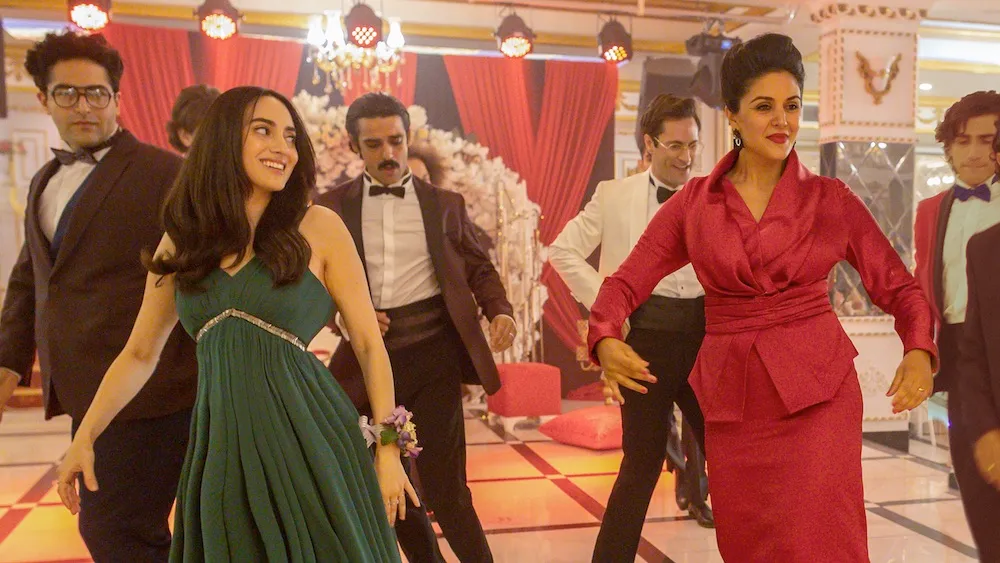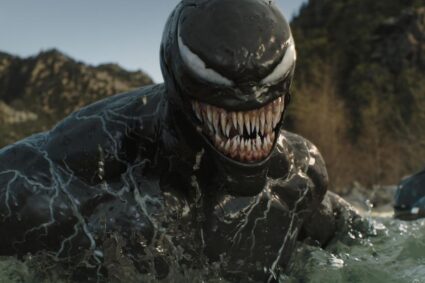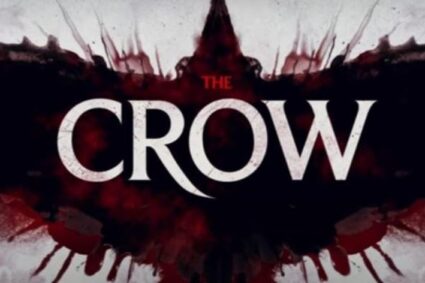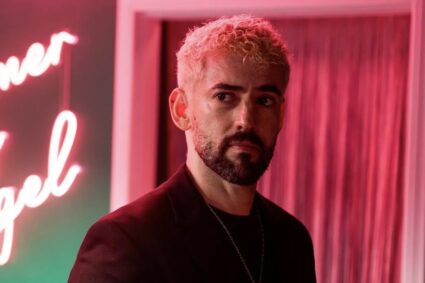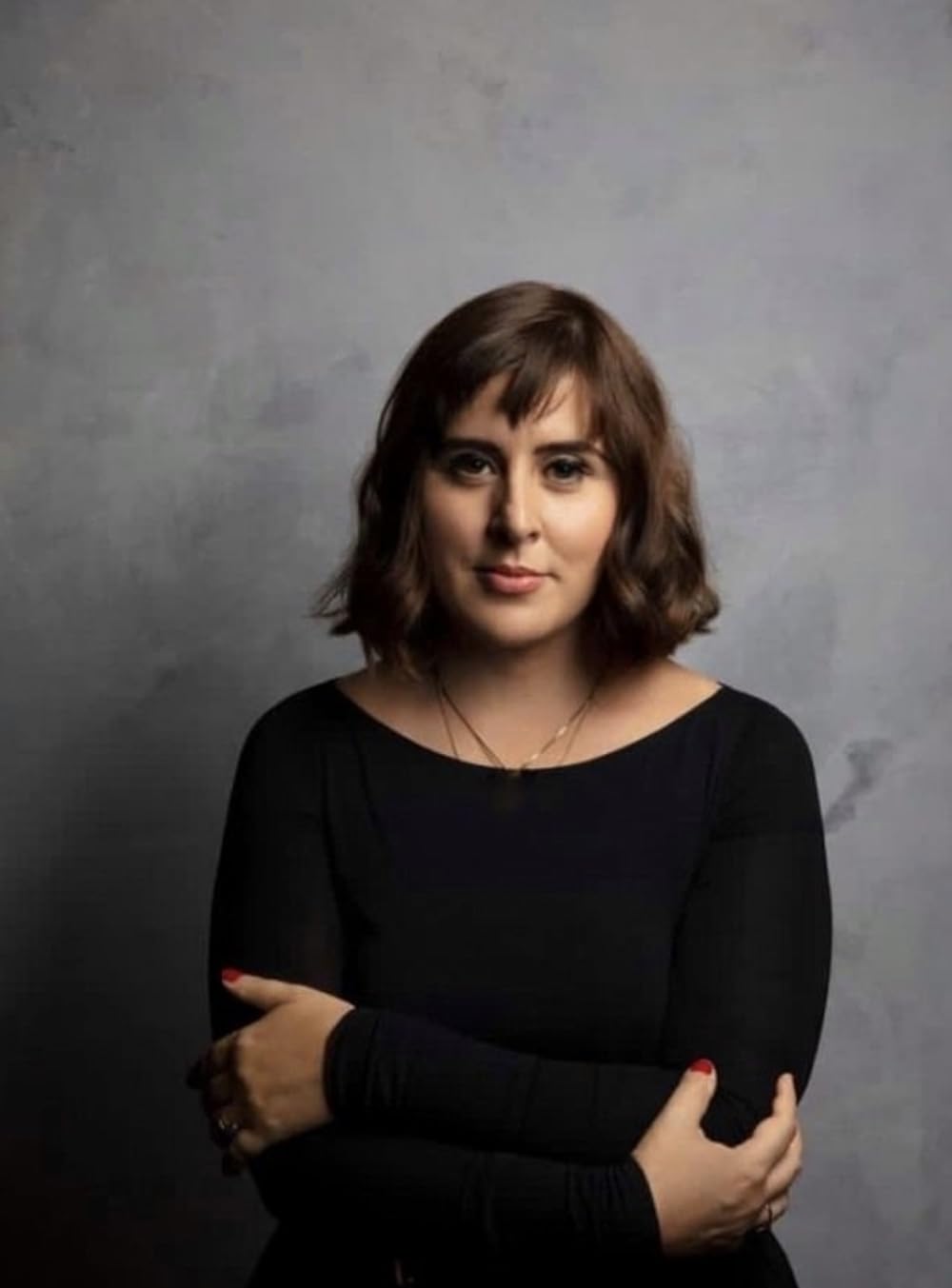
On this special edition of THE INTERVUE, yours truly is at the 11th Annual Middleburg Film Festival for another weekend of spectacular films to see and one of the films I got the chance to see is the upcoming Sony Pictures Classics movie “The Persian Version”.
While her father recovers from a heart transplant, a young Iranian-American filmmaker clashes with her mother and learns of a family secret. This movie carries universal themes for the movie watcher that you could relate in an instant.
Here with me at the Salamander Resort & Spa in the heart of Middleburg is writer/director, Maryam Keshavarz!
The first question I want to ask you, it’s “sort of based on a true story”, which we rarely hear in films these days. So how much of this film is based on your life?
Shockingly, a lot of it is. There’s some fictional elements. In real life, my father died when I was in my 20s. And I never met my daughter. So, it’s a film about family. I wanted my dad to live. So, in the movie, he gets to meet my daughter. In real life, I have seven brothers while in the movie, I have eight. It’s slightly fictionalized because one of my brothers wouldn’t give me the rights. I said to him “trust me, you’re not important. No man is important in this movie. It’s a movie about three generations of women.” He’s like “I prefer not to”. So, he got divided into two.
I made some adjustments for comedic element, but it’s very much our family’s story. My mother’s story is like, verbatim her story. I think the difference is the structure. I don’t know if my mom can stop time. There are some magical realist elements to the story. So, it’s more of a style and the structure, obviously, are in the film cinematic universe. But the actual content is pretty true.
That’s wonderful. I understand that that you wanted to bring in diaspora Iranian actors and actresses into this field. Can you tell us about the processing of casting a film that way?
To cast a film of a 11-person family in two different time periods that was really challenging. And then I wanted them to actually be authentically Iranian by cultures, either Iranian American that could be Iranian British. So, I cast from all over the world. The mother and daughter are from L.A. The mother came when she was thirteen, similar to the character. The mother is played by Niousha Noor and the daughter’s played by Layla Mohammadi, who was born to Iranian parents in Florida, and lives in L.A.
Then the young girl who plays the young mother who’s really an amazing find. I brought her from Iran, and I wanted a girl who was the age my mother was when she got married. She turned fourteen on set. She’s never acted, and she’s amazing. She turned to me and said, “You know what? You pull me out of the movie, you pull me out of school, you make me get married. I have a child; my child doesn’t make it. And then, I haven’t even kissed a boy in real life”. She’s an incredible, very amazing natural actor.
She has the most challenging scenes in the film. She stops time and she has like a four-page monologue to camera. And it’s technically very difficult. It’s all done in one shot, and its freeze freezing of time, like literally everything is frozen. She had to hit the same marks every time. Academy Award winners who can’t get their marks like that. And there’s something very haunting about her. That’s why cast her she seems from another era, like an Audrey Hepburn.
I was very mesmerized, especially with her monologue. It brought tears to my eyes. I also want to talk about Leila and Niousha who played the mother and the daughter. It felt like this was the perfect movie for them. So, talking about bringing them into the film.
Niousha has like been struggling in the industry for twenty-something years to have any kind of lead role. She’s always been like, “woman with her job” in the background one or “terrorist number three”. She’s always had these very semi offensive roles in her career. This was the first film that she got to really be a true co-lead. She’s a triple threat. You know, she choreographed some of the smaller dance sequences. She acts and does the last song in the film. She’s sings “Girls Just Wanna Have Fun”, The Persian version. I just loved her. She plays 30 years of this character. She has so much depth. She literally changes her body somehow; she moves when she as she gets older. She embodies the strength of my mother, but you also see your aging somehow through the film.
And then Leila, who was played by Leila Mohammadi, I cast her because she’s a comedian. It’s her first big role. Now she’s done a lot of series and stuff since then. She comes from physical comedy. And it’s a really tough thing to break the fourth wall, be charming and she has to really invite you into as the audience. I was so attracted to that.
And the grandmother who’s so funny, is a great theatre actress from San Francisco, who has emigrated to America in the 70s from Iran. She’s an Avant garde artist, but she has the spirit of my grandmother.
I love her because she said, “I’ve loved this role so much, because normally when you do plays or films as you get older, you’re not supposed to have any more sexuality as a woman. You’re supposed to be the grandma and you’ve just become this blank blob of a person”. And she’s like, “I love that this character has so many dimensions and still is vivacious and still loves life. And we do as women, we don’t stop just because we get older”.
And from what I’ve read that when this film premiered had the full world premiere at Sundance Film Festival, where it got a standing ovation. I have a feeling it’s going to happen here in Middleburg. So how does it feel to have this film here?
Oh my god, it’s such an incredible place. I’ve never been here. Yes, it’s like magic and so great to be around so many incredible filmmakers. It’s like, really the creme de la creme of films coming out this year. I’m very proud to be part of that. The whole world that Middleburg has created. It’ll be so fun to show it to the Virginia area. It’s probably a world many people haven’t seen but I think like you said, “you’re not Iranian American, but you can see yourself”. I think anyone who either is an immigrant or is from a big family, or who’s ever felt like an outsider, anyone who’s ever had issues with their mother and who hasn’t.
I really wanted to catch the film, in an immigrant story, but in issues that all of us face because really what I wanted the audience to come away with is this family isn’t so different than ours, because I felt like my culture, Iranians and Iranian Americans have been so vilified in the media. And that just never been my experience of a community that’s filled with joy and dancing and food. I want to invite the audience and I always apologize by saying “you’re gonna have to spend two hours with my crazy family”. I think that’s the best way that we can have empathy in this country and really understand people that are not like us and feel connected to them. I think that’s the greatest thing about being an American, that we can be from all different places, but we’re still American.
You’re absolutely right. Of all the sequences that were featured in this film, and they are such amazing sequences. What was your favorite one to shoot?
I do like the dance sequences. I’m not gonna lie. I like we have two big dance sequences that you have one in Iran to “Girls Just Wanna Have Fun”. And that was really incredible with like cranes and all these, trained dancers with our young actress and our lead actress in the middle, the mother, and the young version of Leila. And that was just so joyful, because we brought like a Technicolor American old musical vibe and a Bollywood vibe into the space that is standing in for my grandmother’s home. So it was really nice to recreate that.
Also, the same dance sequences at the wedding were really fun to recreate. I think the hardest stuff was some of the stuff of my mother’s trauma, back in Iran, right? Emotionally, it’s very challenging. It’s very little dialogue. And so much of it rests in how we portray the characters journey in a very silent way and how much she interacts in a landscape that’s creates a sense of loneliness and despair for her. So that was just a very different way of working. So those sequences dance sequences have forty to fifty people. And the sequences are the mother, mostly just her by herself in this amazing but vast expanse of a village. They were both challenging in very different ways. They have really had opposite effects and for the audience.
How did your family feel when they saw their lives on film?
You know, my whole life, my mom says she never wanted to talk about this. It would be shameful, or we would lose face. Then when she became the matriarch when my father passed away and my grandmother, she said, “You know, it’s time for women that we signed up we tell our stories that we become that our stories are important”. So I got my mother’s blessing and when your mom says something, all my brothers fell in line. I think the key to all of this is like, when I cast my brothers, I always cast people that are better looking in the real ones because I knew that would make them so happy. Then, when they were at Sundance, they’re like, “oh yeah, I looked like that before I lost my hair. I was like, “so you know, my brother was a cheerleader. Oh, I had those moves”. So that was a great device on my part.
But my mom, I couldn’t find her at the Sundance premiere. I was searching for her. And she didn’t like my first film. There’s like, “you do this to hurt me”. I was like, “oh my gosh, she doesn’t like it. Where is she? I couldn’t find her the after party”. And then I was talking to my agent who is also my lawyer, and my mom is this little woman. She comes over, she grabs my face, and I think “she’s gonna slap me in front of two hundred people. Oh, my God, I’m a grown woman”. She said, “You did us justice.” So I was like, “that’s the best review. I can have a show my family in an empathetic light and still poke fun at them.”
I have a feeling that families across America and around the world are going to enjoy your film.
It strangely very much a family story. It’s like when grandmothers come with their granddaughters or when young people see it. They said they going to bring their moms and older people say they say to bring their kids. I just love that feeling that people feel like they want to call their mom, or they call them children after it really makes you realize there’s a way to be part of a family even if you don’t all think the same. And even if there’s all these things that we have difficulty with each other, but still, there can be love there at the same time.
The Persian Version coming out to DC theatres, this Friday October 27th.
